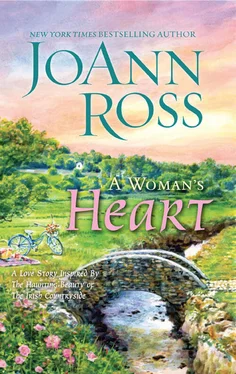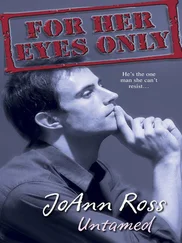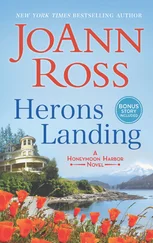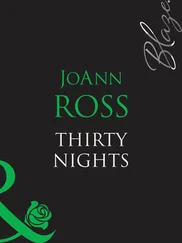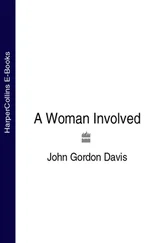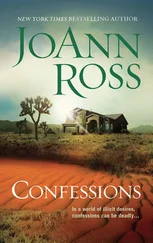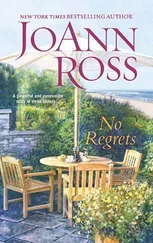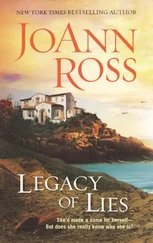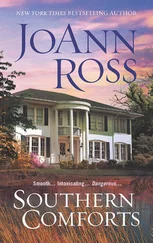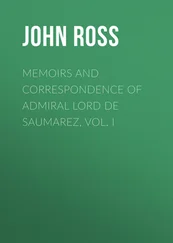“The American is paying a lot. Maybe it’ll be enough.”
Rory’s throat closed up the way it always did whenever he thought about having to move away from the farm. He swallowed painfully. Maeve nudged his hand, coaxing it onto her huge head; Rory absently stroked her while he battled with his unruly feelings.
“I guess you’ll be staying out of sight while the Americans are here.” As much as the family needed the money, Rory hated this idea.
The Lady slowly nodded her head. Although it could have been a trick of the light reflecting off the water, Rory thought he saw the shimmer of tears in her gentle golden eyes. It made him want to cry himself.
“It’s only a month.” It seemed like forever. “And after they’re gone, I’ll come back.” If he wasn’t living in Galway by then.
Rory wiped his burning eyes with the sleeve of his sweater. He hated the way his voice, all thin and shaky, sounded just like some stupid crybaby.
“I’ll come back.” He made his voice stronger, as if saying the words out loud could make them true. Beside him, Maeve thumped her tail.
Of course you will.
Rory’s blue eyes widened with surprise. It was the first time the Lady had ever spoken to him! Oh, the words weren’t really out loud, they were inside his head, but he heard them just the same.
The sun was setting behind the mountain in a blinding flare of ruby light. It made the Lady’s green scales glitter like emeralds. His spirits lifted, his hopes renewed, Rory watched as the ancient lake creature gave one last flick of her tail, then disappeared beneath the cobalt water.
Chapter One
Nora
The news came to Castlelough as if riding on wisps of early-morning fog, winding its way from Donal’s gift shop on the tidy medieval square, to The Irish Rose pub on Gaol Road, to Molly Lee’s Confectionery at the top of the ancient steps, from which visitors made a breath-stealing descent down the towering limestone cliffs to the sea.
From schoolyard to church to cottage to manor house to the post office—where Elizabeth Murphy was quick to announce whenever another red, white and blue overnight express letter arrived from America—the question was always the same:
“Did you hear? The movie people are coming.”
By the time Nora Fitzpatrick arrived in the village on the day the movie people were due to arrive, the whispers and murmurs had risen to a near clamor.
Although the sunshine yellow gorse was blooming vividly in the hedgerows and the taste of late spring rode faintly on the soft wet sea air, the day had turned chilly and threatening.
Nora dropped into O’Neill’s Chicken and Chips for a cup of tea, to warm up after her long ride from the farm, and watched the oldest O’Neill daughter flirt with the handsome boy delivering an order of canned lemonade. Feeling a great deal older than her twenty-five years, Nora left them merrily laughing at some joke the boy had made.
As she crossed the stone bridge over a river rushing its way toward the Atlantic, it occurred to her she’d been jealous of eighteen-year-old Brenda O’Neill.
“Not jealous,” she amended out loud. “Perhaps just a wee bit envious.” The sight of the carefree couple had brought back thoughts of when her husband, Conor, had been courting her. She sighed at the memory, which was both pleasing and sad at the same time.
Conor Fitzpatrick, who’d grown up on the neighboring farm, had matured into a man as handsome and bold as an ancient king. Nora doubted any woman would have been able to resist falling in love with him. After spending time on the continent, he’d literally burst back into her life and eased the grief she’d been suffering so at the time. And for that she’d always love him.
She pushed her bicycle up the steep narrow cobblestone street. In the distance she could see the lake, carved out by a glacier thousands of years ago, limpid against mountains tipped with silvery fog. On the far bank a pre-Christian ring of stones appeared to be silently awaiting a solstice ritual fire. The sap had begun to flow in the birch trees, turning the winter brown twigs a brilliant eye-pleasing purple.
It was spring when Conor had first made love to her—their wedding night—and Nora hadn’t even thought to be afraid, she’d trusted him so. The bittersweet memories were as preserved in her mind as fossils captured in amber.
“I had a ‘dream’ about your mam the other night,” Nora’s sister-in-law had told Nora just the week before. “She thinks you need a new man in your life.”
Nora was not particularly surprised that Kate would be claiming to be in communication with Eleanor Joyce. The fact that her mother had been dead for years had certainly not stopped Nora from talking to her. Since the conversations were a source of comfort, she never bothered to wonder if others might think her a bit daft. Besides, Nora often thought she’d probably go daft if she weren’t able to talk things out with her mam. But although her mother never actually answered her back—except in Nora’s own mind—she suspected it might possibly be quite a different case with Kate.
Ever since childhood, Kate had been able to “see” things. Like when she was five and saw the black wreath on Mrs. Callahan’s door two months before the old woman dropped dead of a heart attack while weeding her cabbage patch. Or the time they were teenagers and had been picnicking on the beach with a couple of boys and Kate saw little Kevin Noonan floating facedown in the surf seconds before a white-crested wave swept the wandering toddler off his feet—but soon enough to warn his mother, thank God.
When her sister-in-law had brought up the subject of men the week before, Nora had reminded Kate—and her mother, in case Eleanor Joyce had been eavesdropping from heaven—that she already had enough males in her life. “There’s Da,” she’d said. “And, of course, Michael and John.”
“I don’t think your mam was talking about your father or brothers,” Kate had argued. “She thinks you need to marry again. You need a husband.”
Nora had grown up in Castlelough. As a child she’d run barefoot in the meadows with boys who’d grown up and were now the county’s eligible males. She knew them all, liked most of them well enough, but there wasn’t a single solitary one whose boots she’d want to put beside her bed.
“Well, then,” she’d said with a soft laugh, “since there’s none handy around here and I’m too busy taking care of the farm and the children, along with trying to keep Da on the straight and narrow, to go out and find myself a proper husband, I guess you’ll have to tell mam to pull some strings up there and send me one.”
“I suspect that may be what she has in mind to do,” Kate had answered. “But I doubt she has a proper one in mind. What would be the challenge in that, after all?”
What indeed? Knowing her father’s quicksilver nature all too well, Nora suspected Eleanor Joyce had certainly had a great many challenges in her own life. As did Kate. And most of the other married women of her acquaintance. Irish men, while charming, unfortunately did not always make the easiest of husbands, she thought as she stopped in front of her destination.
The sparkling windows of Monohan’s Mercantile were filled with treats designed to lure the passerby inside—colorful tins of biscuits, bags of saltwater taffy, tidy rows of Cadbury chocolates, jars of skin creams and bath lotions made from the carrageen moss still gathered by hand from the rocky western coast and bunches of perky golden daffodils displayed in dazzling white pots.
A paper banner, handpainted kelly green on white, welcomed the cast and crew of The Lady of the Lake to Castlelough. Bordered with blatantly touristy shamrocks, the banner also featured an imaginative rendition of the creature rising from the water. Nora guessed it had been drawn by the Monohans’ twelve-year-old daughter, Margaret, a talented young artist who always won, in her age group, the summer’s Sea Safety poster contest.
Читать дальше
